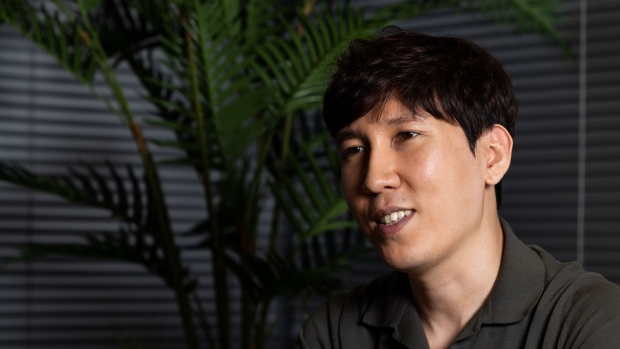Aug 2, 2022
Early Investor In Defunct Luna Token Plans to Raise Another Fund
, Bloomberg News

(Bloomberg) -- Simon Seojoon Kim, South Korea’s most well-known cryptocurrency investor and an early backer of the ill-fated Luna token, said he hasn’t lost faith in the battered sector and plans to raise a third venture capital fund in the first half of next year.
The head of VC firm Hashed is looking to step up investments in GameFi projects, which make blockchain-based video games allowing players to own assets within them, he said in an interview with Bloomberg News.
Kim made a name for himself as a crypto evangelist and investor in startups like The Sandbox and Sky Mavis, the owner of the Axie Infinity game.
The implosion of TerraUSD and connected token Luna in May was a major blow to Hashed. Kim said he bought 30 million Luna tokens in the project’s early days and lost most of the investment in the crash. That amount of tokens would have been worth as much as $3.6 billion when Luna’s price peaked on April 5. The total market value of Luna coins soared to about $41 billion in early April, a month before the Terra/Luna project’s collapse.
Undeterred by the setback, Kim said he has no plans to slow the pace of investments in the sector, which has been ravaged by a series of failures among once high-flying startups. Hashed has deployed more than half of the 240 billion won ($180 million) fund it raised in December, and will start raising a new vehicle as soon as the rest is used up, he said.
“In the tech sector, there’s no such thing as a portfolio that guarantees success, and we make our investments with that in mind,” said Kim. “We believe in the community’s growth, and that has never changed.”
That sort of optimism is less pervasive in the VC industry these days. Funding for private crypto companies fell to the lowest level in a year in the second quarter, dropping 31% from the previous three months, data from PitchBook show.
Read more: Crypto Startup Funding Falls to a One-Year Low in Market Crisis
Kim believes the virtual game world will increasingly become interconnected with the real economy, as blockchain technology and nonfungible tokens could allow users to claim items they purchase within apps.
This could create “a vast number of jobs as assets are exchanged between the virtual and real worlds,” he said.
While the collapse of the Terra/Luna ecosystem rocked global cryptocurrency markets, the event is drawing added scrutiny in South Korea, where the project’s co-founders hail from.
South Korean prosecutors have raided several crypto exchanges and searched the home of one of the co-founders of Luna developer Terraform Labs as they investigate allegations of fraud and illicit fundraising. Current and former Terraform Labs employees have also been barred from leaving the country.
Read more: Crypto Hedge-Fund Head Predicted Terra’s $60 Billion Implosion
For Kim, the fallout isn’t limited to monetary losses. At least two local newspapers have accused him of hyping the Luna token and selling a portion of his Luna holdings before the fall, questioning his moral responsibility as a major market player.
Some of “the assets that we invest in are experimental, and we have always kept it a rule to not make any trade recommendations,” Kim said. Referring to the Luna sale, Kim said he held on to 99% of his early Luna investment throughout the crash and that what he sold were staking rewards.
©2022 Bloomberg L.P.





